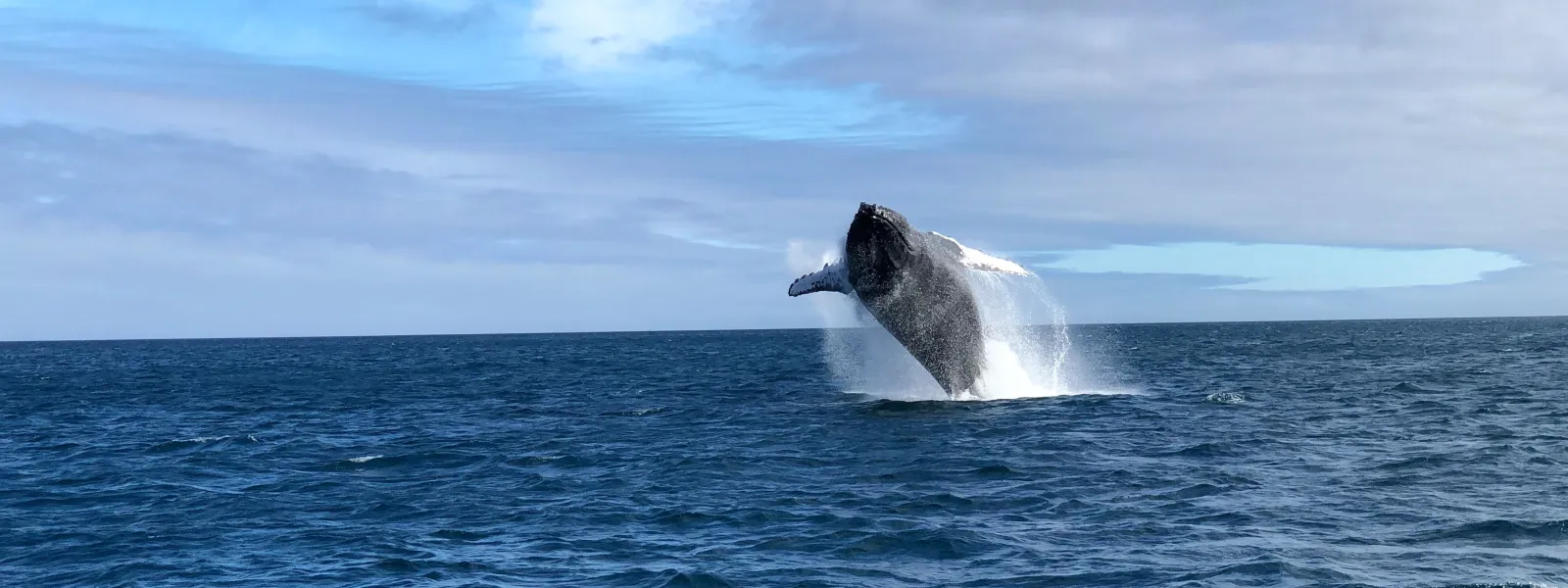
International alert issued on threats of uncontrolled fishing near Galapagos
Photo: Bryan Thompsone on Unsplash.The Interamerican Association for Environmental Defense (AIDA) and the Ecuadorian Coordinator of Organizations for the Defense of Nature and the Environment (CEDENMA) sent an international alert about the problem and threats of uncontrolled fishing on the high seas, particularly in the vicinity of the Galapagos Marine Reserve. The document calls for the adoption of preventive, urgent and effective measures to stop overfishing from causing irreversible damage to ecosystems and species in the Galapagos Islands and throughout the Tropical Eastern Pacific.
The call comes after an industrial fleet of 260 fishing boats (243 flying the Chinese flag)—one of the largest in the world—was registered in July in Ecuador's Exclusive Economic Zone (EEZ), near the Galapagos Marine Reserve. The fleet included vessels from companies with records of violations of sovereign rights and the jurisdiction of coastal states, such as illegal, unreported and unregulated fishing, rule breaking and intentional environmental degradation.
"The ocean is a highly connected system where what happens in one area will affect many others, so coordinated and cooperative actions between countries are key for the effective conservation of marine resources," explained Gladys Martinez, Senior Attorney with AIDA's Marine Biodiversity and Coastal Protection Program. "The role of international law is also fundamental in the sense that countries must enforce in good faith what has been agreed upon in conventions, treaties and other international instruments aimed at protecting the ocean.”
The alert was sent to authorities overseeing the following international treaties and organizations: the United Nations Convention on the Law of the Sea (UNCLOS), the Convention on Biological Diversity (CBD), the Convention on International Trade in Endangered Species of Wild Fauna and Flora, and the Convention on the Conservation of Migratory Species of Wild Animals, the World Trade Organization, the Permanent Commission for the South Pacific (CPPS), the Eastern Tropical Pacific Marine Corridor (ETPMC) and the United Nations Educational, Scientific and Cultural Organization (UNESCO).
Overfishing in the high seas (areas beyond national jurisdiction) can affect not only exploited areas, but also nearby marine and coastal ecosystems, as well as the food security of less developed countries. Therefore, activities such as those recorded in July represent a serious threat to the Galapagos Islands and three other World Heritage Sites—Cocos, Malpelo and Coiba in Costa Rica, Colombia and Panama, respectively—as well as to biodiversity on the high seas.
"At CEDENMA we are very concerned about the situation related to industrial fishing activities in international waters that affect the fishing, biological and ecological resources of the seas under Ecuadorian jurisdiction and the Tropical Eastern Pacific region," said Gustavo Redín, President of CEDENMA. "We therefore urge Ecuadorian authorities to act on this issue and defend this natural heritage, which is unique in the world."
The alert details the ecological, economic and social importance of the Galapagos; the current fishing situation inside and outside of the Marine Reserve; the impacts that overfishing on the high seas has on local fauna; the international obligations that countries have to protect the ocean and its resources; and the regional mechanisms for coordination between countries on marine conservation.
Finally, AIDA and CEDENMA request a series of measures from the international organizations and authorities in charge of treaty compliance, including that they:
- Urgently investigate the facts set out in the document.
- Urge the Government of China and other governments with vessels present in the vicinity of Ecuador's EEZ to comply with their obligations to protect highly migratory species.
- Urge the Ecuadorian State to improve its monitoring efforts to effectively protect valuable natural resources.
- Review China's fishing subsidies, which are encouraging overfishing on the high seas.
- Continue negotiations within the framework of the Convention on Biological Diversity so that State Parties commit to protecting 30 percent of the ocean by 2030, including areas on the high seas and highly productive areas such as the Galapagos Islands.
- Urge Ecuador to continue supporting the negotiations to reach a global agreement for the conservation and sustainable use of biodiversity in areas beyond national jurisdiction (the High Seas Treaty) and to favor fishing management in that part of the ocean.
- Adopt coordinated, joint, and cooperative actions among the countries of the Eastern Tropical Pacific in favor of marine conservation.
- Strengthen the application of the rules that bind coastal states to ensure that fishing activities on the high seas are subject to standards of sustainability and the protection of marine biodiversity.
Press contact:
Victor Quintanilla (Mexico), AIDA, [email protected], +5215570522107
